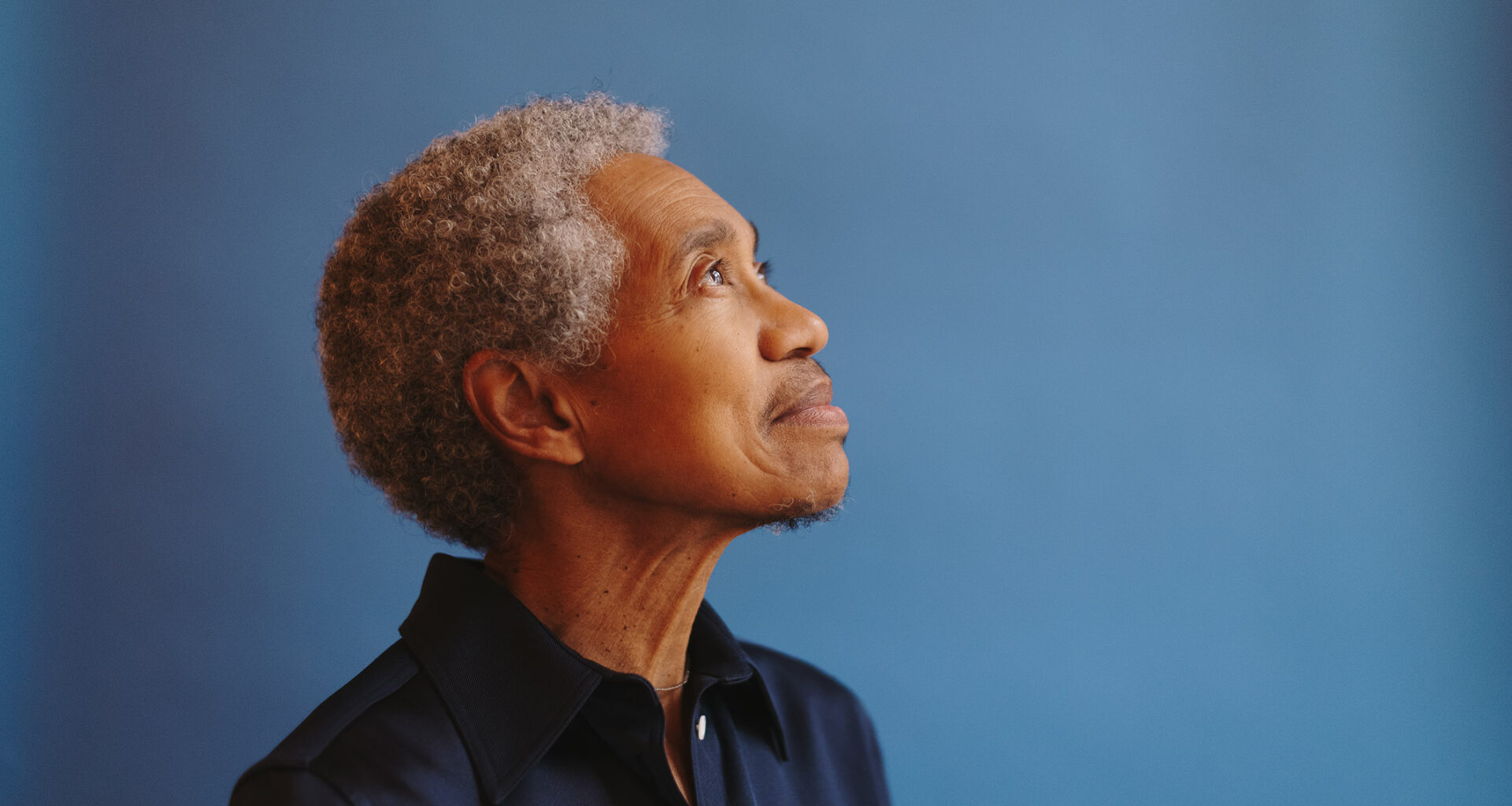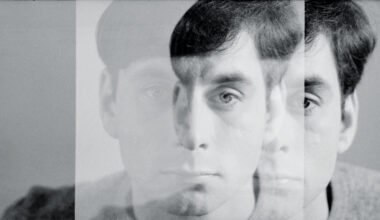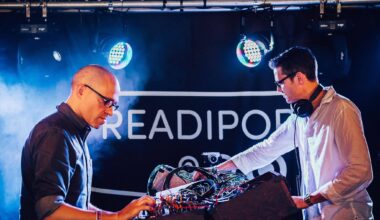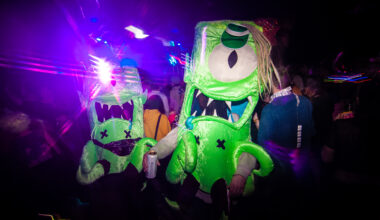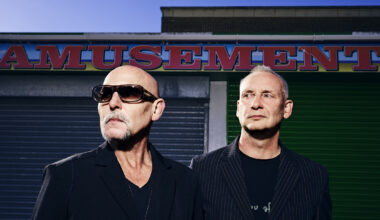On his first studio album since 2004, revered American singer/composer Beverly Glenn-Copeland exudes warmth and optimism. He talks about the inspiration behind the record, his late-career resurgence and the inordinate power of love
At the beginning of the summer, the septuagenarian musical polymath Beverly Glenn-Copeland received an honorary doctorate from the University of Toronto. The degree – a Doctor of Laws (“Not something one gets every day,” Copeland joked in his acceptance speech) – was given in recognition of his “innovative and influential musicianship known around the world and his sterling artistic reputation”.
However well-deserved his late-life flowering may be, though, after four decades of relative obscurity, it only tells part of the story. In a stirring celebratory speech replete with emotional intelligence, Copeland beseeches his fellow graduates, most of them nearly 60 years his junior, to “push for advocacy” in a world that continues to lurch from one crisis to another.
Copeland’s beautiful and empathetic act of oratory recounts some of the most significant points of a varied and colourful life. He movingly talks about growing up black and gay in an America still scarred by the hateful bile espoused by the Ku Klux Klan and which continued in parts to be motivated by their racist rhetoric. And while much remained “hidden” (he eventually identified as a trans man in the early 2000s), he admits that music “allowed his essential self a voice” and that today he has a “dogged commitment to be no one other than myself”.
Yet, rather than burn with the righteous indignation of someone denied so much for so long, his address to the University of Toronto’s class of 2023 is suffused with love and compassion. A few weeks later and Copeland is – for once – lost for words when trying to describe this momentous event.
“Words fail in expressing what this experience was for me,” he smiles, gathering himself before finally arriving at an adequate explanation. “My purpose was the same as my purpose in writing ‘The Ones Ahead’ – to encourage all young people to search for and find their inner gold.”
‘The Ones Ahead’ is not only Copeland’s first album of new material since 2004’s ‘Primal Prayer’, but also his first fresh body of work since his 1986 masterpiece ‘Keyboard Fantasies’ was somehow discovered by a Japanese collector in 2015. The story goes that Copeland pressed 200 copies of his far-sighted magnum opus on cassette, sold 50, and the Japanese collector snaffled the remaining 150 almost 30 years later.
Finally getting a vinyl release in 2016, the preternatural genius at the heart of ‘Keyboard Fantasies’ – imagine Talk Talk collaborating with Nina Simone – led to Copeland being embraced by a generation of musicians such as Bon Iver, Blood Orange and Julia Holter, who would have all been in short trousers when the piece was originally released.
Given the affection that a coterie of today’s musicians has extended towards Copeland and the numerous critical hosannas bestowed upon the Philadelphia-born singer-songwriter, the expectations surrounding ‘The Ones Ahead’ are unlike anything Copeland has ever faced. Thankfully, this novel sensation didn’t faze him, not least because he didn’t set out to write an album.
“It’s true,” he says when asked about what got him back into the studio. “I had a lot of music I was excited about that needed recording. So it was more about gathering songs I had written, some a while back and others more recently, that felt like they belonged together. Once the idea of creating an album became fully formed, I realised I wanted to provide a vehicle for encouraging the generations of young people coming up in these difficult times – an essential offering for affirming their humanity.”
The latter part of that explanation, much like Copeland’s convocation address, speaks to the essence of ‘The Ones Ahead’. He explains that the title refers to the next generations and those in what he calls “the unseen world” – our ancestors, our spiritual guides.
“A huge part of my mission has always been about encouraging young people,” he says. “It’s a part of my Buddhist practice. Those coming up today and those yet to be born have a challenging path ahead, and it’s imperative for me to use what remains of my life to provide tangible encouragement.”
The pleasing news is that the sonic boost Copeland hopes to yield is writ large across ‘The Ones Ahead’. Though he’s not easily given to hyperbole, he describes it as his “best work to date”. It’s undoubtedly a triumph, rich in mood, nuance and atmosphere, as the nine tracks mine an exuberant vein of warmth and optimism. Musically ambitious, it marries Copeland’s folk-blues roots with a soulful generosity reminiscent of Curtis Mayfield, while its ambient, post-rock electronics and sophisticated avant-pop bring to mind the likes of Arthur Russell, Talk Talk (again) and Khruangbin.
Although Copeland himself is too modest to countenance such a suggestion, this vindicatory album gives weight to Kurt Vonnegut’s maxim that music is proof of the existence of God. Or at least some higher, spiritual presence.
“Sound waves as the ultimate creative force, yes!” he smiles. “David Bowie talked about art as the new way that spirit can speak to us in times when most cannot find spirit in traditional religion. I concur with David’s view.”
When he was much younger and struggling to find his way as a musician, Copeland was told by someone of a mystical bent that he wouldn’t become successful until later in life. And while he admits that his fragile ego probably wouldn’t have borne the weight of recognition in his 20s and 30s (“I would have become lost”), he certainly doesn’t believe his late-life creative blooming was somehow inevitable.
Indeed, by the time he reached his 70s (he turns 80 next year), with his music still unknown, Copeland confided to his wife Elizabeth that it wouldn’t be until after he died that his work would be discovered, and she would then be set for the rest of her life.
“I was happy with this thought, but my fiery wife wasn’t having it,” says Copeland. “She said, ‘No way. I want you to reap the fruits of your labour’. She began to pray for a way to be shown because at that time few people were interested in my music.”
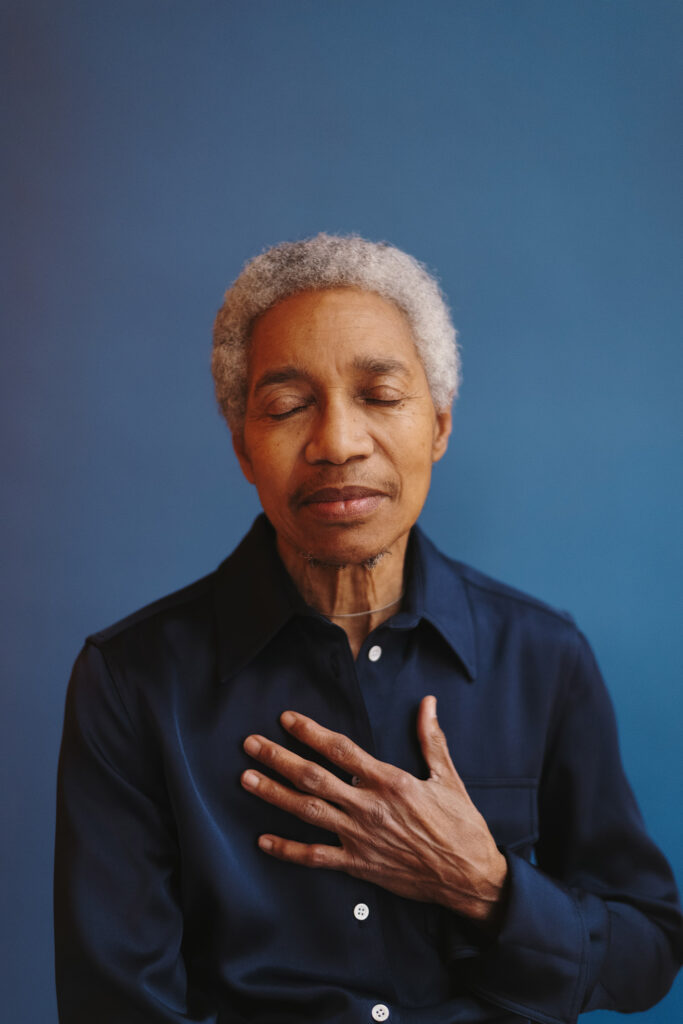
Global fame may have eluded him until recently, but artistically he’s led a bountiful life, underpinned by his SGI Buddhist faith. After his first two self-titled folk/blues/jazz albums stalled at the starting line in the early 1970s, it was his Buddhist beliefs that helped him stay buoyant.
“The daily practice keeps me grounded,” he explains. “And the community… well, I go to them when I need guidance or when I’ve lost my way.”
Musically, he contributed to children’s TV shows, including the iconic ‘Sesame Street’ and, in Canada, ‘Mr Dressup’. Can the joyous optimism that pervades much of his work be traced back to his involvement in the wide-eyed world of children?
“Absolutely,” he shoots back instantly. “Working with children is a central must for me. I spent years living in obscurity and doing shows for children whenever and wherever I could.”
With his interest piqued by the emergence of home computers in the early 1980s, and driven by a childlike curiosity to tease different sounds from the raft of new technologies flooding onto the market at the time, Copeland composed ‘Keyboard Fantasies’ – a mesmeric mix of song cycles, half-speed futuristic techno and new-age serenity – and self-released the album. The reception to this astonishing piece of calmness-as-art was not indifference or stunned silence – no one knew it existed.
Undeterred, he persisted with his creative quest. He met his wife Elizabeth in the mid-1990s. Fittingly, their relationship began as artistic collaborators.
“She sang back-up for me in concerts, as well as inviting me to participate in the shows she was producing,” he recalls.
The pair began to create arts programmes for local communities – first in Ontario, then in New Brunswick when they moved east. Today, he credits her unswerving support as critical – particularly through lockdown and beyond, when they moved four times in just over three years.
“She is my memory, my caretaker,” he says. “She runs our business. I know that without her I might have kicked the bucket or be working in Walmart!”
At the heart of ‘The Ones Ahead’ is a belief in the power of advocacy. Specifically, a resolute desire to motivate today’s young to stand up for their rights. Copeland’s own championing is for black, indigenous and LGBTQ2S+ communities.
The opening track on the album is the deeply affecting ‘Africa Calling’. It moves joyously through the sound of the African diaspora, touching on soul, funk and carnival rhythms. He explains that the song began as an exploration of a strange time signature before morphing into an unapologetic deep dive into his African heritage.
“Every time I hear it, it brings me to tears as I dance,” he smiles. “So much knowledge of our lineage was lost to those of us whose ancestors were brought here when slavery became big business. My African, Cherokee and Scottish heritage all come through in my music.”
Rather than explore the pain – both figurative and literal – of the slave trade in lyric form, Copeland invokes a wordless chant throughout. The song’s easy Ali-like rhythmic shuffle strengthens the message.
“The wordlessness of – and the interplay with – the rhythms were the only way to sing about a longing which no language can properly describe,” he says. “I know that music is a way through, a way to alchemically transform pain. It’s medicine, pure and simple.”
In observing the persistent effects of colonialism in his music, Copeland cites the influence of the indigenous Canadian-American folk musician Buffy Sainte-Marie. He talks about how her work has inspired a new generation of musicians to embrace their musical roots.
“As they reclaim their heritage musically, other aspects of the beautiful, sophisticated cultures that were wiped out through the violence of colonialism and memories of these cultures begin to shine through, and an element of dignity is restored.”
Influence is a two-way street, of course. Copeland’s track ‘La Vita’ has most recently inspired Romy on her summer banger, ‘Enjoy Your Life’, in which she samples the line, “My mother says to me, ‘Enjoy your life’”.
“My mother actually said this to me in the last decade of her life,” he recalls. “After a time of separation, we had a healing, my mother and I. We were able to be with each other fully in our humanity, and she came to live with me. I saw her through her death, held her in my arms.”
The trans actor Elliot Page is another to have paid homage to Copeland, including a selection of Copeland’s lyrics in his recently published acclaimed memoir.
“I am deeply touched,” says Copeland.
Unsurprisingly, music, art and culture are things worth fighting for in Copeland’s sympathetic worldview. He talks about how the powers that be are trying to break the ties – often invisible, in the case of art – that bind us.
“We must all actively work to keep them strong,” he says. “This is hard in a dominant culture, particularly in North America, that puts ‘art’ as a fluffy extra and does not recognise it as an essential. So, more and more artists are struggling to stay afloat and are pushed to meet standards of sameness rather than innovation.”
Copeland should know. Since the pandemic, times have been hard – both financially and health-wise. He and Elizabeth have been held aloft by the kindness and benevolence of strangers as they have been forced to move around the Maritime provinces of eastern Canada.
“That powerful community love was very much at the front of my mind when recording the album,” he says.
And for Copeland, love is everything. It’s pivotal to his musical journey and central to his latest breathtaking, emotional and humbling piece of work.
“Love is a power,” he concludes optimistically. “Not a frilly emotion as many would have it. Love exists on many levels – romantic, family, community, love for and with Gaia. I believe the building blocks of the universe are love. I don’t talk about God, but name what some would call God as the great mystery, the great mathematician, the great musician… and all woven together with the strands of love.”
‘The Ones Ahead’ is out on Transgressive
